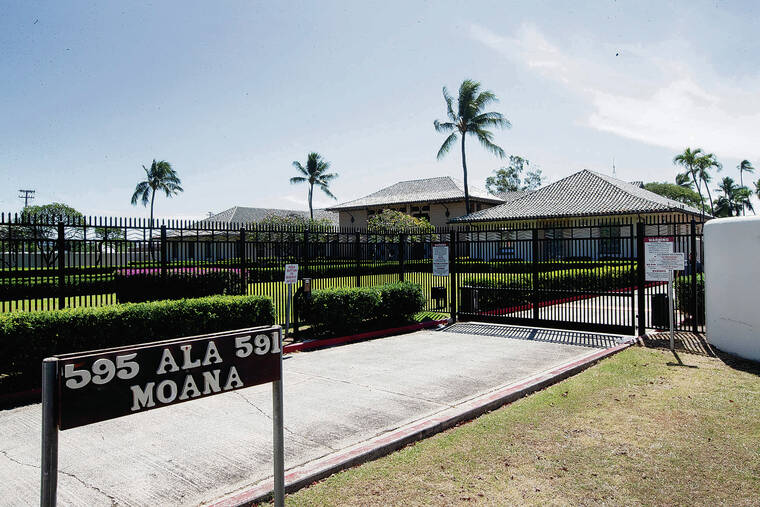About 32% of all adults on Kaua‘i who could have voted did this past primary election. This means only 18,499 people voted for not only themselves, but for the entire population of Kaua‘i (73,298 total population; U.S. Census, 2020).
These numbers are a regression from last election cycle, where Kaua‘i touted the highest voter turnout in Hawai‘i. In the 2020 primary election, 50% of all registered voters voted. This means that 3,915 fewer people voted in this primary election than in the last primary election.
As for the 2020 general election, 72% of registered voters on Kaua‘i voted with a total of 34,081 votes. If these trends continue, Kaua‘i should theoretically see more than half (around 61%) of registered voters, or about 22,643 votes, in this upcoming general election.
Our voting system on Kaua‘i is one where people are not automatically registered to vote. A 78% voter-registration rate (48,052 registered voters) indicates that most people on Kaua‘i care enough to intentionally say “yes” to being engaged in the voting process, even if this engagement is passive. Although some speculate that mail-in voting might contribute to Hawai‘i being amongst the highest in voter turnout, this year 39% still means most people aren’t voting. We do not have polls on Kaua‘i to assess the sources of disengagement. However, based on the numbers from those who did vote, we know that about a third of voters on Kaua‘i chose not to vote for anyone for Kaua‘i County Council. Of the 66.5% of those who voted for at least one Kaua‘i County Council candidate, there is only a 0.1-0.3% difference between each of the top seven candidates.
When only 32% of adults on Kaua‘i are voting, only 39% of all registered voters actually vote, and about a third of the voters who do vote cast blank ballots, it statistically takes a less than 1% difference for someone to be elected at the county level. When the majority of people on Kaua‘i do not vote, how can we elect public servants who are a true representation of the population? Moreover, how can we inspire the next generation of public servants to want to serve when they do not vote for the public servants of today?
A long-standing fact is that the population most likely to vote are those 45 and older. According to data from the Kaiser Family Foundation, in the 2020 primary election less than half of the 18-24 population of Hawai‘i voted, which was the least-represented age group in voter turnout, with the second being 25-34.
As a millennial, Kaua‘i born and raised active voter myself, I understand firsthand the disillusionment in voting on Kaua‘i. A dominant sentiment amongst millennials and Gen Z is a collective sense of apathy in the democratic process. Millennials and Gen Z are characterized as generations focused on social change, technological advancement and nonbinary logic (for example, gone are the days of just “man” and “woman” categories and perhaps “Democrat” and “Republican” will follow suit). Millennials and Gen Zs are in a double bind where they know the democratic system is not working for them but don’t yet have the experience to change it.
Consequently, what many young people choose to do is nothing. Many other millennials and Gen Zs chose to civically engage in the form of activism and influencing; avenues through which they feel their voices are actually being listened to. The way our democratic system functions currently must transform if it is not to go obsolete or insurrected. Millennials and Gen Zs generally don’t like to be involved in systems that do not prove they are dedicated to changing. Gen Zs are voting (and running) in our elections now. It is not long before the 15,832 Kaua‘i residents below the age of 18 are writing and rewriting our policies on Kaua‘i to help us adapt to changing times…or not.
The “or not” is a troubling, probable possibility. Our future is here. Our votes should reflect the shifting needs of the future generations, not what is best for a few of us with power right now.
An ‘Olelo No‘eau says, “Ho‘omoe Wai Kahi Ke Kao‘o” meaning, “Let’s travel together like water flowing in one direction.” Our waters need to be connected to our source (kupuna) while flowing toward the direction of our future generations. Somewhere along our alawai (path of fresh water), we allowed our waters to go stagnant. When waters are stagnant, disease spreads and ecosystems collapse. This is what is happening to our democratic system on Kaua‘i.
Do your part by encouraging young people to participate in our democratic process, support the youth in your life in sharing their opinions about what’s going on on Kaua‘i, and please VOTE.
Mahalo,
•••
Nikki Cristobal, Ph.D., is executive director, Kamawaelualani, and principal researcher, Missing and Murdered Native Hawaiian Women and Girls Report for the Hawai’i Commission on the Status of Women and Office of Hawaiian Affairs.





Thank you, Nikki. I will indeed urge young people to vote….Republican. The democrats have screwed this state royally and it’s time for them to go.
I didn’t vote in the primary because there were too many stupid candidates. I think politics is getting ridiculous. Just working is enough. I don’t need a loser in front of my tv screen. This is strange. Not sure yet.